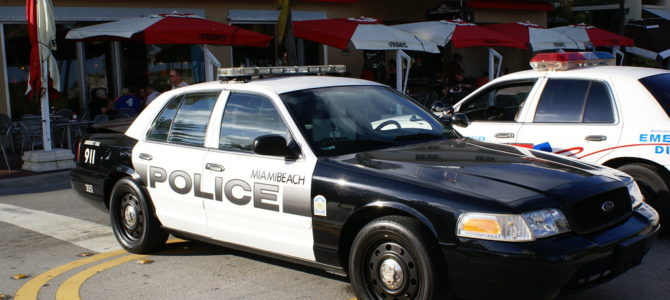On Wednesday Atlanta police officer Garrett Rolfe was formally charge with felony murder in the killing of Rayshard Brooks. While evading arrest after having assaulted Rolfe and his partner, Brooks points a Taser at Rolfe and fires. At that point, and exactly that point Rolfe takes out his gun and shoots. If this act of self-defense by a cop is felony murder, then we need to take a hard look at what the police are in today’s American society and what we wish them to be.
Traditionally the badge gives law enforcement officers wider latitude than it gives a regular citizen in using violence to prevent crime and physical harm. We offer this wider latitude because when police use violence they do so on behalf of society, not in furtherance of their own individual interests. We understand that the chaotic nature of crime will inevitably put police in untenable situations and since most of us don’t want to deal with crime ourselves, we offer legal support, as well as good pay and benefits to those willing to do the job for us.
But in the case of Rolfe, the Atlanta District Attorney Paul Howard does not appear to give the police officer any wider latitude based on his job, much the opposite in fact. The DA has almost nothing to say about the fact that Brooks resisted arrest, attacked police, stole a weapon and fired it at them. At one point Howard referred to Brooks’ behavior as “jovial.” The message is that Brooks’ actions were irrelevant to the situation. Rolfe should have been counting Taser shots and known in those split seconds that the person firing a weapon at him actually posed no threat.
If this is the new standard, if we are not going to give police wider latitude, if we are going to strip them of qualified immunity, then we are basically treating them like anyone else with a gun. That being the case it makes more sense for us to consider the privatization of the police than to pretend they are officers of the government with special protections. If we demand that police enter dangerous situations but tell them if something goes wrong its all on them, not on the society they serve, then police are in an impossible position.
Privatizing the police force would solve this problem. And for many progressives it also has the advantage of being the inevitable outcome of their goal to abolish police. Communities could simply hire private police who are subject to the same laws as anyone else. They also could not be required to enter dangerous situations so there would be no reason for them to have special legal protections.
The downside to this plan of course is that poor communities might just go un-policed, but then again that would end police brutality in those areas. But the big upside is that we could finally hold those who enforce the law fully accountable. We would no longer be forcing cops to put their lives on the line for us and therefore we would have no responsibility to grant them any legal protections.
Instead of policing being an oppressive tool of the state, it would be a matter for individuals and communities to deal with themselves. Without special rules and protections private police will be more likely to simply ignore crime than get involved in violent complicated situations that could end badly.
The system of policing we have used until now has worked, it has reduced violent crime, it has kept most of our communities safe, but inherent to that system is that police officers are a unique and protected class of individuals when violence occurs. Taking away those protections breaks an essential social contract with police. Once that contract is broken we have no right to compel them to enter dangerous situations.
The fact of the matter is that most of the plans put forward from abolishing, defunding, to reforming the police involving stripping away protections for them, and undermining their ability to be protected by their union leadership. Fine. But if being a cop is no different than being anyone else with a gun then like anyone else with a gun police should be free to decline to intervene in dangerous situations.
I don’t like the idea of armies of George Zimmermans in the employ of gated communities keeping the peace. I would prefer to keep the traditional system in which policing is a function of the state that confers on the police protections and immunities. But asking the police to do that job without such protections and immunities leaves them in a no-win position. If that is where this is going, then we are better off with private police forces that can decide for themselves when the danger is worth it.








